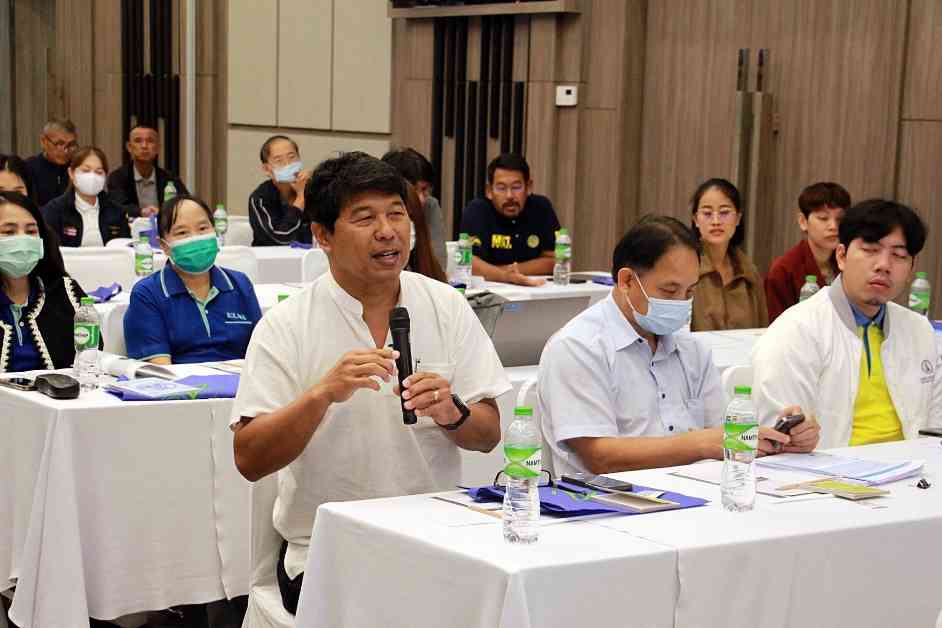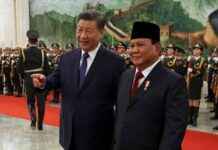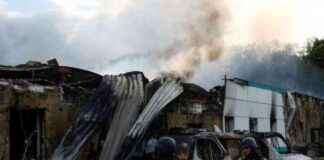Chiang Mai, a picturesque city in northern Thailand known for its rich cultural heritage and stunning natural landscapes, has been facing a severe environmental crisis in recent years. The region has been plagued by heavy pollution, primarily caused by vehicle emissions, agricultural burning, and industrial activities. The pollution levels in Chiang Mai have reached alarming levels, posing serious health risks to the residents and damaging the environment.
The Government’s Response
In response to the escalating pollution crisis in Chiang Mai, the government has proposed the use of nuclear energy as a potential solution to address the environmental challenges facing the region. The Office of Nuclear Energy for Peace (ONEP) has initiated a comprehensive evaluation of the legal aspects of implementing nuclear energy to promote peace and sustainability in the region.
On August 18, 2567 (Thai calendar), a seminar was held at the Kantary Hills Hotel in Chiang Mai, where Dr. Passit Lorthipong, the Secretary-General of ONEP, presided over the event. The seminar aimed to gather feedback and opinions from various stakeholders on the evaluation of the effectiveness of nuclear energy laws in promoting peace. The participants included government officials, experts from the private sector, and other relevant parties.
Dr. Passit Lorthipong emphasized the role of ONEP in advising on policies, strategies, and guidelines related to nuclear energy for peace. The office is responsible for ensuring the safety of licensees, the public, and the environment, in accordance with international standards and agreements. ONEP’s mandate includes evaluating the effectiveness of laws under its jurisdiction, as outlined in the Fundamental Law on the Preparation of Legislation and the Evaluation of Law Effectiveness Act of 2019.
Evaluating the Impact of Nuclear Energy
The seminar focused on studying and analyzing the principles and reasons behind the potential use of nuclear energy in Chiang Mai. The evaluation aimed to assess the impact of enforcing nuclear energy laws and determine whether they are beneficial to the population or burdensome. Additionally, the analysis considered the potential conflicts or overlaps with other laws and collected feedback from relevant stakeholders.
The evaluation process involved examining the necessity of enacting nuclear energy laws, listening to the perspectives of stakeholders, and assessing the practical implications of implementing such legislation. Dr. Passit Lorthipong highlighted the importance of conducting a thorough analysis of the repercussions of nuclear energy implementation to ensure it aligns with international standards and best practices.
The stakeholders in attendance at the seminar expressed their concerns and provided valuable insights on the proposed use of nuclear energy in Chiang Mai. The discussions revolved around the potential benefits and risks associated with nuclear energy, the regulatory framework needed to govern its usage, and the implications for public health and the environment.
Public Perception and Awareness
Despite the government’s efforts to explore nuclear energy as a solution to the pollution crisis in Chiang Mai, there remains a lack of public awareness and understanding of the issue. The seminar highlighted the need for increased information dissemination and communication to educate the public about the benefits and risks of nuclear energy.
The lack of awareness among the general population and the limited dissemination of information have hindered public engagement and participation in the decision-making process regarding nuclear energy. It is essential to bridge this gap and foster an informed dialogue between the government, experts, and the community to address the environmental challenges effectively.
Moving forward, it is crucial for the government and relevant stakeholders to enhance public awareness campaigns, conduct educational outreach programs, and engage in transparent communication to build trust and understanding among the residents of Chiang Mai. By fostering a collaborative approach and involving the community in decision-making processes, the government can ensure a sustainable and peaceful transition towards cleaner energy alternatives.




















